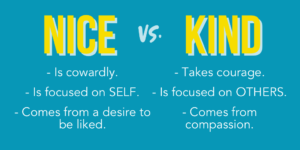I’ve been writing. And editing. A lot.
Not as much as I should be.
In fact, this COVID things has had me in a bit of a slump and I’m behind.
But I’ve written over 500,000 words this year so far, in books and blogs and classes and writings, and more.
And I have a lot more still to say.
In three of the books I’ve produced this year, the topic of negotiating your relationships has played a part.
So, today, when I was poking through a dozen or so recently unused writing prompts, and this topic popped up, I realized that it’s time to put this out there.
You see, one day in 2017, my old debate of ‘does love hurt?’ came up in conversation related to my emotional vocabulary writing, and touched also on exformation.
The next day’s writing prompt (I add these to my calendar, and I have weekday prompts through June 2020 right now) was to write on loving without attachment.
I tried, but didn’t QUITE get it. So, I put it off. And again. And again. Until now.
When I realized I was trying to do WAYYYY too much in this writing, and I needed to cut it back.
Loving with or without expectations, to me, ties directly into how we each define and experience love for ourselves.
If you were to type “love” into the google, you would get the following first definition:
an intense feeling of deep affection.
Simple, right?
Except that when I ask a classroom of people to each define love as they view it, that answer does not come from a single one of them. In fact, it isn’t even close, ever.
EVERYONE has a different definition for love, and they vary wildly from one to another.
Which just goes to show that we rarely communicate what we think we do, when we communicate without thinking about communicating.
And gets me to my point of a similar thing happening when we love without thinking about loving.
When we connect with others and build love and lives together, and forget to really talk through what it is we each THINK we’re building.
One of my favorite quotes is:
She did observe, with some dismay, that far from conquering all, love lazily sidestepped practical problems. — Jean Stafford
Thing is, we have a tendency to ASSUME that others, especially those we love, think like us.
Which leads us in our relationships to precisely the expected amount of trouble and then some.
Those assumptions and how we act on them without thinking or negotiating with our partners are commonly referred to as covert contracts (which are simply assumed expectations), which I wrote about in the negotiations chapter of my So, What is Kinky, Anyway? book.
I also wrote a blog about it, and it’s worth a read: Covert Contracts Are Ruining Your Relationship(s)!
Ok, great.
But how does this whole relationship negotiation thing work?
Simple. Communicate.
Talk with each other about your relationship and what you want it to look like.
Talk about:
Sex. How often? What kind? Limits? Birth control or health issues? (More on this in the chapter on communicating about sex and sexuality.)
Arguments. How do you defuse an argument? Do you want to create “fighting fair” rules? Does either of you get the ability to veto or end an argument? How do you ask for time to cool down?
Loyalty. What does loyalty mean to you? Are you monogamous? Poly? Open? Swingers? How do you plan to interact with others in play, sex and love, if at all? Do you have agreements you’d like to make?
Finances. How do you handle money? Do you share it, or keep separate accounts? Do you move in or buy a home together? Who’s in charge of major decisions? What can be done without discussion, what needs buy-in from everyone in the relationship? How do you save?
Appreciation. What makes each of you feel loved and appreciated? The Five Love Languages is a good place to start, if you don’t even know where to begin with this.
Children. Will you have them? How do you make parenting decisions? Do you both have ideas about how to raise them? What decisions need to be made together, and which are OK to make on the fly?
Specialized skills. Who knows things the other doesn’t? Who might be in charge during a backpacking trip, versus training the dog or putting together IKEA furniture? It’s good to talk these things through, and consciously agree to appreciate a greater and more varied skill set.
Ruts and adventure. Every relationship goes through ups and downs. Do you want to put systems in place to implement when you’re feeling a bit low? Perhaps suggestions on things to do, date nights, and etc. to spice things up when you’ve been stressed and overworked.
Chores. Who is responsible for what on a day-to-day basis? Who cooks? Who cleans? Who folds that damn laundry? LOL!
Power exchange. Who is in charge? Who gets final say? In what situations? Some people are kinky and take charge (or give it up) only in the bedroom. Others enjoy it during negotiated scenes and getaway weekends. Still others prefer it 24/7. And of course, the level of service and power exchange should be discussed as well.
Don’t try to sit down with your partner and bang all this out in an hour. Or a day. Or even a week or a year.
A relationship negotiation is an ongoing process. A living contract. It’s not one and done. It’s bound to change as you grow together and create something for both of you.
It’s the best way I’ve found to make sure that your expectations are out there in the open, and discussed, and that you can actually EXPECT them, rather than just assume them.
It’s a balm to insecurity-minded, because you don’t wonder, you know.
It’s awesome for those of who like to know we’re being clear and understood.
It’s amazing for power-exchange relationships, because things are spelled out and agreed to.
It is also a challenge to start.
It’s hard to create the habit, and sometimes, you’ll slip up and feel like an idiot.
But it’s worth just pausing and fixing it right then and there, and getting back on the only-explicitly-negotiated-expectations-allows path.
Because let me tell you, loving without non-negotiated expectations is an amazing feeling.










